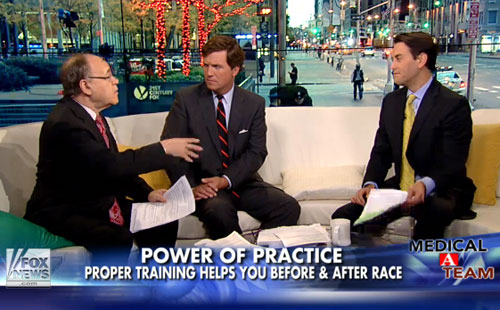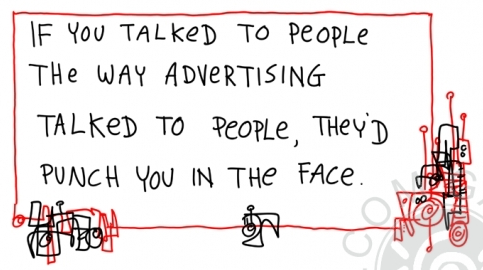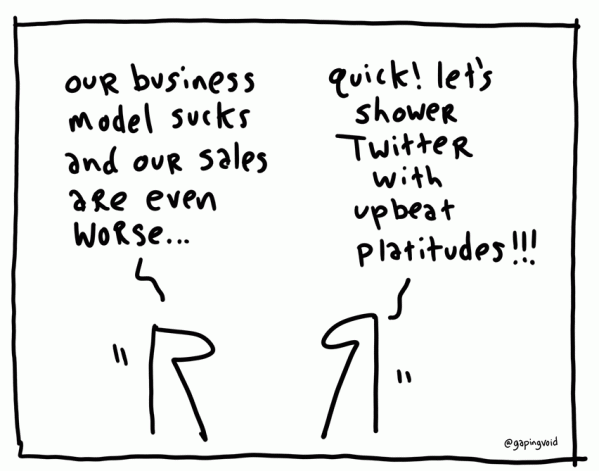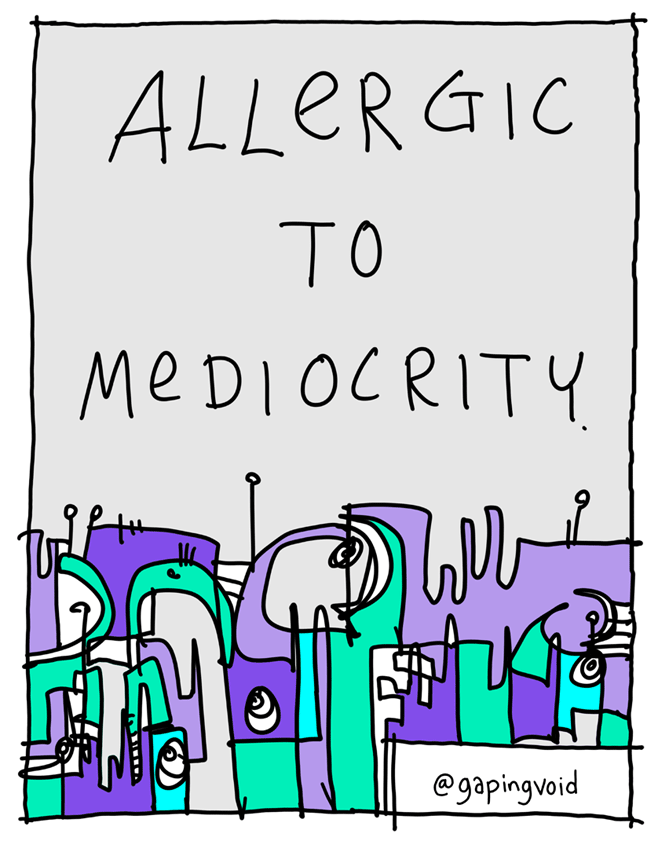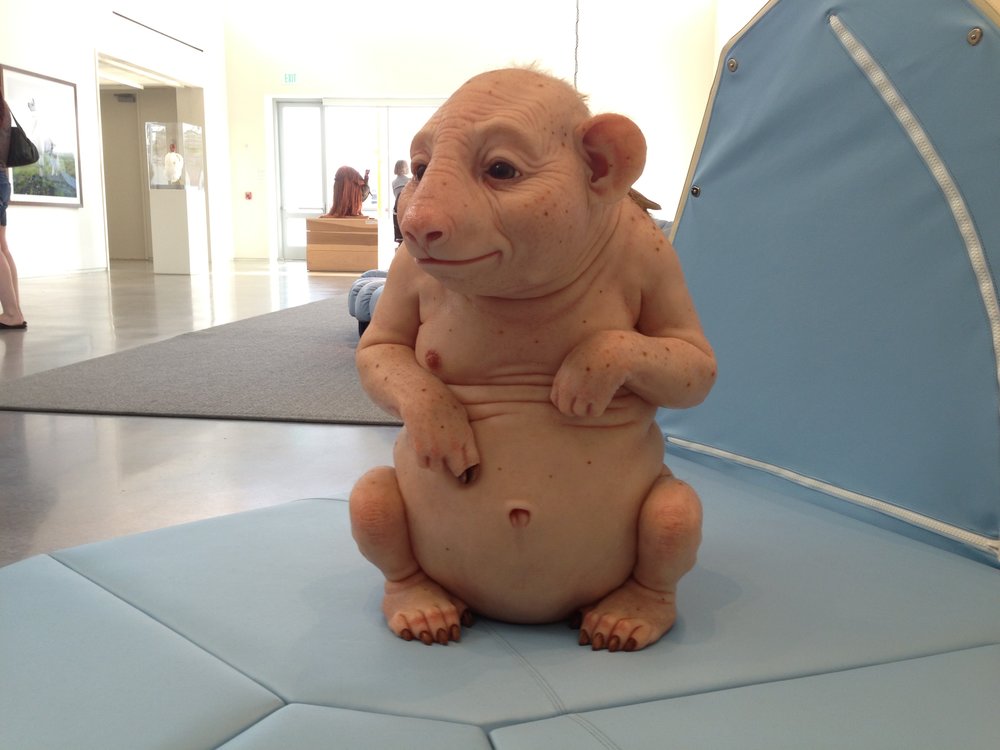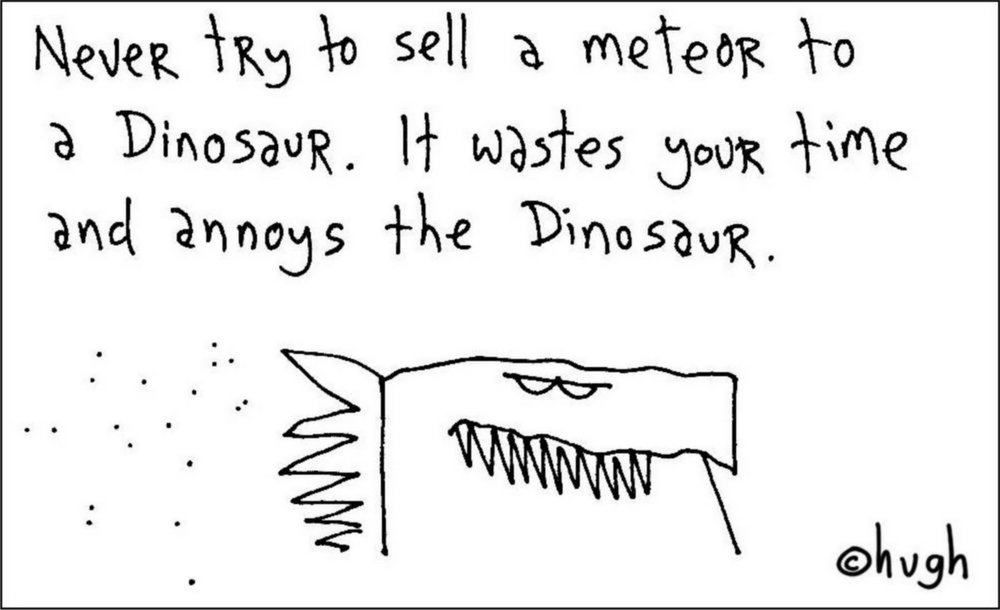When you have to dumb things down, make ideas more vanilla so a larger group will swallow them you become average at best...and often look ridiculous in the process. While entertaining...it also destroys any chance of getting meaningful change to happen.
Why I do Triathlons, run Marathons and ride my Bike all day
because I don’t want to ever wonder if I could have done something knowing I had the choice to actually do it. What a waste and a shame that would be.
We are rich in the sense that most of us do have a choice…we are physically and mentally capable to do meaningful things for ourselves. And in the course of doing these things we can also inspire others to do the same…to exercise the freedom of choice and as a result to experience a more meaningful life. Knowing I have this freedom, this opportunity, how could I choose not to? How I could I choose apathy...being poor…when I could be rich? Many people do. Many people squander the opportunity, mistaking momentary comfort for fulfillment. I feel obliged to do what I can to make sure they don’t.
But why then choose the extremes…in anything we do? Why choose so much discomfort, both physically and mentally? Because doing something uncomfortable helps you manage fear…specifically the fear of being uncomfortable. In other words, by experiencing it, you train yourself to handle it. And as a result you are less uncomfortable...less fearful of that place. After running your first marathon you’re no longer fearful of the unknown of what it’s going to be like. Same for getting the first chemotherapy treatment or falling off of your bicycle. Pushing yourself towards the uncomfortable is the only way to manage it…to overcome it.
But how do you get there? By first choosing to go. By nature we are explorers, wonderers and pioneers…we are curious. Can I do it? What will it be like? Is it really that hard? Is it really that easy? Will it bring me joy? Will I achieve my goals? Will I feel fulfilled? This innate curiosity is what makes the journey of life so interesting. And it often leads you to the unexpected…both good and bad. Of course, often the seemingly bad ends up being good…in the long-run. The point is to start the journey and to surprise yourself by choosing uncharted waters. Then you’ll see what you’re capable of.
The journey, the richness of doing all these things, and of being able to do all of these things, and to see people affected by my actions brings me joy. Inaction then is not an option.
If you had the chance to teach a kid to ride a bike, build a fort, solve a math problem or to believe in themselves how could you not? Choose to do so and you’ll know the joy I’m talking about.
Why is more important than What
What does it mean to hire someone successful?
What it shouldn't mean is hiring people who work the hardest, the fastest or the cheapest. And it shouldn't mean hiring people who will simply follow instructions. Because these people will get tired. And when they get tired of that work, tired of you, they will go away. People going away means you need to find new ones. And that costs money. Turns out it costs way more to keep finding, hiring and training new ones (then putting up with people growing tired, being unhappy, firing them, defending lawsuits, etc.) than just hiring people that choose to stay a long time. Unhappy people get tired…happy people stay awhile.
What it does mean is hiring people who want, care about and value the same things you do. And it means hiring people who make the choices you would make. It means finding people who are aligned with you and as a result are happy doing what you do.
Success and happiness are not about stature and money. Those are outcomes, results of deeper convictions and associated actions…one's core values. As a society we like to measure success in the results a person has achieved (experience, job titles, college degrees, kids not in jail, compensation history, etc.). And to some degree this is fair since the outcomes are directly tied to a person's world views, culture and the choices they've made throughout life. But given the possibility that two people with generally the same outcomes may have arrived there on completely different paths, with different ideals, a different series of fortunate or unfortunate events, different teachers, different parents, etc., it's worth digging deeper.
What (someone has done) is not what's important. Because what is not what you're paying for. You're actually paying for Why…why they chose to accomplish something…not the fact that they arrived. What a person is likely to accomplish (in your organization) is based on how they will act, how they will relate to and connect with others and how they feel about themselves and the people around them. If they found their way to past accomplishments doing things you wouldn't do or wouldn't be proud of doing, it's best to know that up front so you can either avoid them or mitigate the misalignment in some way. This way you'll both be happy.
So why then are we hiring, promoting, firing, measuring performance based on What people do instead of Why they do them? Mainly because the way we've been measuring outcomes has been baked-in for ions, from pre-school through retirement. It's basically a life of multiple choice and whoever has the most awards, stripes or certifications wins. And besides, it's far easier to measure results than it is to asses core values. College Degree? Check. Ability to type 50 words per minute? Check. Didn't get fired for stealing? Check. Trying to determine how someone is wired…much more challenging. But not impossible.
Here's how I do it…at least how I start anyway. The first question I ask a candidate (Hint, it has nothing to do with work experience, GPA or how many people they managed.)? What are your dreams? What do you want to do with the rest of your life? Okay, that's two questions. But you get the picture. Here's another question I always ask…what do you do for fun? Usually these two (three) questions tell me more about a person (and why they do things) than ten of the more standard HR questions ever will. And it always, always changes the tone of the interview. It loosens things up. It makes it okay to be human. Now, with the standard HR stuff out of the picture, we can get down to figuring out if we're both going to be happy…with each other. Try it…it's fun.
The easy thing to do is to find people who are experienced and seemingly a good fit based on their abilities, which is their aptitude measured by past performance…stuff they've done well. You'll get some good hires this way. And they will do their jobs well...at least for a bit. But for long-term success culture, happiness and personal fulfillment win. Personality, character, love of the game, and passion for the same things the organization stands for trumps productivity and efficiency every time. So go find some dreamers.
Hugh on Advertising...still one of my favorites
What Does Success Look Like?...no numbers allowed
Often I get bogged down in the minutia when trying to solve problems. After a while I remember to ask myself this question. And it works every time. It really clears things up. It resets my mind and gets me focused on a clear goal. In terms of marketing and more specifically spreading the word I ask these additional sub-questions...
- Who (what type of person) am I trying to reach? What inspires them?
- Why do they want to hear from me?
- Why would they support me (and my purpose)?
- How do I earn their trust?
- How can I connect with them?
Take special note that I didn't define success as a number. Because success isn't a number, it's a relationship. And you don't define or characterize a relationship with numbers…you do it with feelings. Numbers are indeed important. Numbers are required to make something sustainable. But numbers are a yield, based on the success or failure of the relationship. Unfortunately, too often we still confuse the "success" part of the question to mean "how many"...how big is the audience?…which really means how many can we sell? Because if we don't sell X we can't make money. On the heels of this strategy is the mass market promotion in HOPES of getting a small percentage to buy. Unfortunately, you annoy (and alienate) all of the people who don't want to hear from you and you leave out some of your best prospects...who didn't fit into the misguided demographic profile. This is no way to build trust. And certainly no way to build an audience of loyal raving fans. Now, if this isn't what you're after, go for it. Otherwise, spend more more time defining what success looks like, without numbers.
Now Worries...we can market our way out of this
I continue to be astounded (just last week during a major ad campaign unveiling) with the misuse of the word Marketing. For some reason people, including the so called marketing professionals (they're the worst offenders), suggest Advertising is the same as Marketing.
Folks, Advertising is a part of Marketing...it's not the whole thing. In fact I put it to you that advertising's share of the marketing pie continues to shrink as markets fragment and a customer's attention becomes increasingly harder to secure. What's replacing it is Content. Or as you sometimes hear, the Steak (where the advertising is the Sizzle). And since Sizzle is depreciating rather quickly as a means to convince people, the Steak is obviously the more important thing to focus on. But that's the confounding thing...people don't. They're still looking for the easy way out, the short-cut, the quick cure.
They're isn't one...sorry.
Hat Tip again to Hugh Macloud for the inspiring cartoon
Mediocrity...what side are you on?
The Gift of Discovery
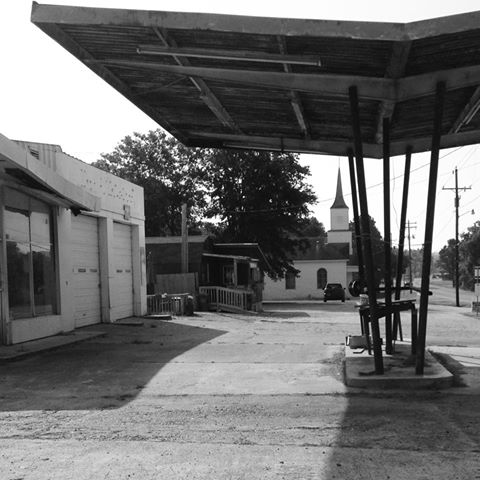
The best discoveries I've ever made have been off the beaten path. Whether people, projects or places, the story has always been the same. Plan a journey, get forced (or sometimes choose to go) off course and cool things happen. Sometimes it's a conversation with a stranger. Sometimes it's an unplanned topic of conversation with a friend. Sometimes it's a wrong turn while running or biking in an unfamiliar town. And sometimes it's forcing myself to ask risky questions or to take the time to go the long way. But almost every time the outcome is the same. I meet interesting people, learn new points of view, see interesting things…and learn a whole lot along the way.
So even though I'm sometimes annoyed by the process of the detour, in the end I'm glad I took it.
One of the best gifts you can give yourself is the element of surprise through discovery. It only costs a bit of time and an open mind...rarely much else. I hope you let yourself wander…the journey is indeed priceless.
What's the Point Jam Session with Hot Dog Mike
Insightful conversation with Michael Juiliano, aka Hot Dog Mike, about how he went from hotels to dishing out hot dogs. And more importantly why he did it and how he maintains momentum.
What's The Point Jam Session with 100 Mile Race Finisher, John Self
Just over two years ago John went for a 32 minute walk/run...he walked for 28 minutes and ran for 4 minutes. That day marked a dramatic shift in his life...and his purpose. He made a decision to stop letting excuses get in the way of doing something that mattered, prolonging his life and making a difference.
Earlier this month he completed the Umstead 100 mile endurance run in North Carolina. While this is certainly not the end of the journey, it was a monumental achievement and milestone. Surely, there will be many more to come.
If you need some inspiration to do meaningful work and to remove the everyday roadblocks which prevent you from achieving your dreams, please watch this.
And pardon for some of the poor audio...that will be corrected for next time.
My next WTP Jam Session will be with +Michael Juiliano , better known as Hot Dog Mike. Schedule TBD.
Sticking Your Neck Out
Part of practicing art...doing something remarkable, something that gets noticed is to go where others choose not to go. By putting this sort of skin in the game you almost always get two things…a connection with at least one person who sees the world as you do. And someone else will be offended, annoyed or angered. Art is never appreciated by everyone. Nor should it be. If it were, all things would be relatively the same, alas we'd live in a very boring and average world. Thankfully there are people who enjoy sticking out their necks to do work that matters…the understand the trade-off between risk and reward. And better yet they understand that playing it safe is the most risky thing of all.
Props to the 21C hotel in Bentonville, Arkansas for getting my attention with this little guy at the lobby entry.
What Can I Do to Improve?
Most of the time we wait for someone to tell us…because that's what we've been taught. Rarely do we take the initiative to ask (our boss, customer, friend/spouse) this question without solicitation…mostly because we're afraid to. Asking the question invites criticism of our work, our world view and what we stand for. Asking suggests that we aren't good enough and that we have issues to correct. Perhaps the questions should be rephrased…how can I help make things better?
As a leader imagine if your front line employees came to you with that sort of initiative. Now imagine what the employee might say if you came to them with the same question…what can we do to help you realize your goals, dreams (different than asking how can we help you improve)?
We're taught that as leaders our job is to get the most out of people…that's management. We're taught to teach, measure and correct…to improve productivity and yield. We're taught that as followers we should do our best to meet standards, fit in and follow the game plan. And if we're not doing so, our bosses will tell us. But what would happen if we moved the waiting game out of the way? What if everyone every once in a while asked themselves (then those around them)…how can I make things better? Imagine how refreshing that would be.
Margaret Thatcher- RIP

Thanks Hugh for the image
Why Do People Follow You?
Stumbled upon on of Simon Sinek's videos and was reminded of one of the most important leadership principles...Leaders have people that follow them because they have to. People who Lead have people who follow them because they are inspired and because they want to.
Why do people follow you? Better find out if you don't know the answer.
How Often Do You Make People Smile?
And how often do you help them fulfill their dreams?
In terms of creating a legacy, these might be the most important measurements of all.
The Art of Gift Giving
The foundation of hospitality is gift giving...doing more for others than for yourself. What is often overlooked is timing...giving when it's most important for the recipient and not necessarily convenient for you. There's very little art in heaping on the expected smiles, catch phrases and giving someone trinkets. The art happens when you go out of your way to do something meaningful...for the moment. That's remarkable. Unfortunately, you can't do this by reading a script. It requires expertise in picking up clues and then acting upon them. Oddly enough, the clues are gifts themselves. So it becomes an exchange...call it improv. The key is to do something, to act, perhaps go out on a limb, to complete the exchange. Without action, the gift of the clue is wasted. What a shame.
What makes the story of the video so remarkable is the surprise action by the young man at the end. The real heros might be his parents...thank you.
Why Most Sales Pitches Don't Work
Problems
The product being sold is unremarkable to whom it's being offered (which makes the salesperson annoying in the eyes of the prospect). This problem has two parts, the product is inferior and/or you have the wrong audience. Both are equally problematic. Having the wrong audience relates to the next item.
The sales person doesn't seek to understand the true motivation of the buyer. The best example of this is the unexpected telephone solicitation (usually done by a person you've never met, who hasn't experienced your product or service and who hasn't done any research to understand your goals...annoying and usually results in a hang-up).
Solutions
Make stuff that the masses will ignore (because it's not easily understood), but a few will find remarkable. Make stuff that some people can't live without. Make stuff that is scarce. Make stuff that matters. Make something where the act of making it is appreciated (often more than the thing being made). Think handcraft. Think like an artist…because you are one.
Find the few who appreciate, enjoy and find meaning in what you do. Connect with them…exchange ideas. Build a tribe, an audience who trusts you. Then sell them your stuff. And don't bother anyone else…it's annoying.
Image credit to Hugh McCloud (I bought this print for a friend of mine…wish I would have bought two).
What's the Point...
if doing what you're doing isn't worth talking about, doesn't inspire anyone...doesn't leave a legacy? How sad if you're just trudging along, waiting for that lucky break.
So don't wait…
- Set the bar
- Tell someone about it
- And start moving down the path, bit by bit
At a minimum, your journey will be more interesting.
Reading This Might be Better Than College
College is a great experience. But for most of us...we didn't learn things we could take into a job. Turns out practical experience wins out over Quantitative Methods of Business and Macro Economics. So, even if you go to college, you might try reading this anyway. At least start with the 30 posts that are available if you click through.
Thanks Seth.
Why put off to tomorrow what you can do today?

If you have the information, acting promptly is usually far more effective than putting things off. Often the decision is nearly the same. And instead of getting ahead in the line...your in the back, or last. Perfection is impossible...so go ahead and take the step...today!
Why wait for tomorrow to start your resolution?
Happy New Year!
